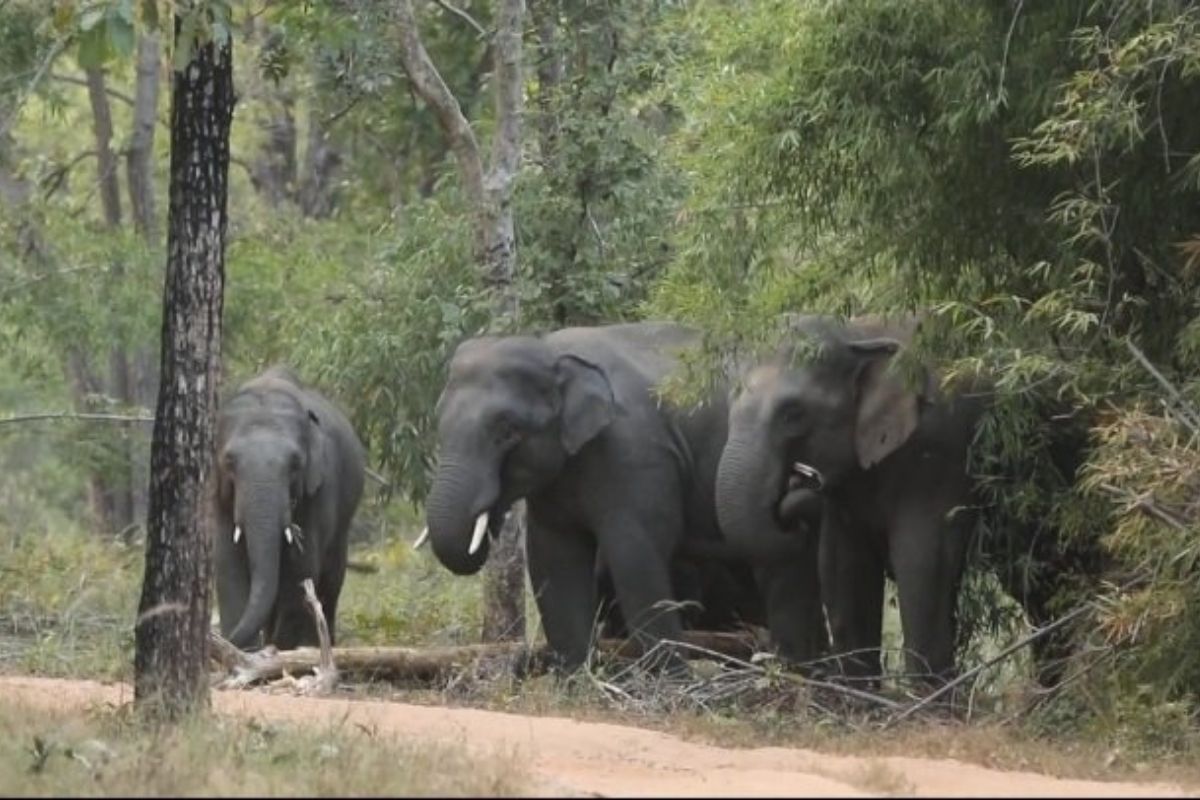After the deaths of 10 elephants in Bandhavgarh Tiger Reserve, the Madhya Pradesh government is improving elephant management and conservation efforts. Two teams of forest officials are going to Tamil Nadu and Karnataka to study elephant habitats, management strategies, and measures to mitigate human-elephant conflict.
Chief Minister Dr. Mohan Yadav has directed this initiative, emphasizing the urgency of addressing the issue. Principal Chief Conservator of Forests (Wildlife) and Chief Wildlife Warden V.N. Ambade explain that the teams will stay in these states until November 30 and submit a detailed report to the Forest Department. Based on this report, the state will develop a comprehensive action plan to safeguard its elephant population.
MP sends teams to study elephant management
Ambade says the study will explore several critical areas, including:
-
Human-elephant conflict management strategies.
-
Deployment of effective barriers to prevent encroachments.
-
Captive elephant management practices.
-
Community participation in conservation.
-
Use of artificial intelligence (AI) in monitoring and conservation.
“This initiative allows us to learn from Tamil Nadu and Karnataka, which have established successful practices to manage their large elephant populations,” Ambade says.
Study Teams and ItineraryThe study will be conducted in two phases, with separate teams visiting Tamil Nadu and Karnataka.
-
First Team (November 18–23): The Deputy Director of Bandhavgarh Tiger Reserve, Divisional Forest Officers (DFOs) from Shahdol North, Umaria, and Mandla West, and range officers from Sidhi, Kanha, and other reserves make up this team, which is under the direction of IFS officer Amit Kumar Dubey, Field Director of Sanjay Tiger Reserve. A veterinary doctor from Sanjay Tiger Reserve will also join.
-
Second Team (November 25–30): Under the direction of Dr. Anupam Sahay, IFS and Field Director of Bandhavgarh Tiger Reserve, this team consists of representatives from Kanha Tiger Reserve Buffer, DFOs from Shahdol South, Mandla East, Katni, and Anuppur, as well as range officers and a veterinary expert from Bandhavgarh Tiger Reserve.
APCCF Wildlife L. Krishnamurthy will coordinate both teams.
Operation Wild Trap aims to combat poaching
Ambade highlights the study’s significance, saying, “This is not just about learning techniques; it’s about creating a robust framework for long-term coexistence between humans and elephants.”
Dr. Anupam Sahay, leading the second team, says, “Effective elephant conservation demands collaboration, innovation, and community involvement. We aim to bring these elements together to protect our wildlife.”
The Forest Department is launching Operation Wild Trap from December 1, 2024, to January 31, 2025, to combat poaching and enhance patrolling in wildlife areas. Officers will submit patrolling reports every 15 days, and areas with inadequate enforcement will face strict reviews.
Madhya Pradesh is taking proactive measures to address elephant conservation challenges. By learning from Tamil Nadu and Karnataka and implementing focused strategies, the state hopes to prevent future tragedies and foster coexistence between humans and wildlife.
Support us to keep independent environmental journalism alive in India.
Keep Reading
Watch: Kashmir experiences first snowfall of season after dry spell
Amarnath Yatra: Tackling rising death toll from extreme weather events
Tourists arrival in Kashmir break records, a need to regulate it?
From tourist paradise to waste wasteland: Sindh River Cry for help
Follow Ground Report on X, Instagram and Facebook for environmental and underreported stories from the margins. Give us feedback on our email id greport2018@gmail.com.
Don’t forget to Subscribe to our weekly newsletter, Join our community on WhatsApp, and Follow our YouTube Channel for video stories.






